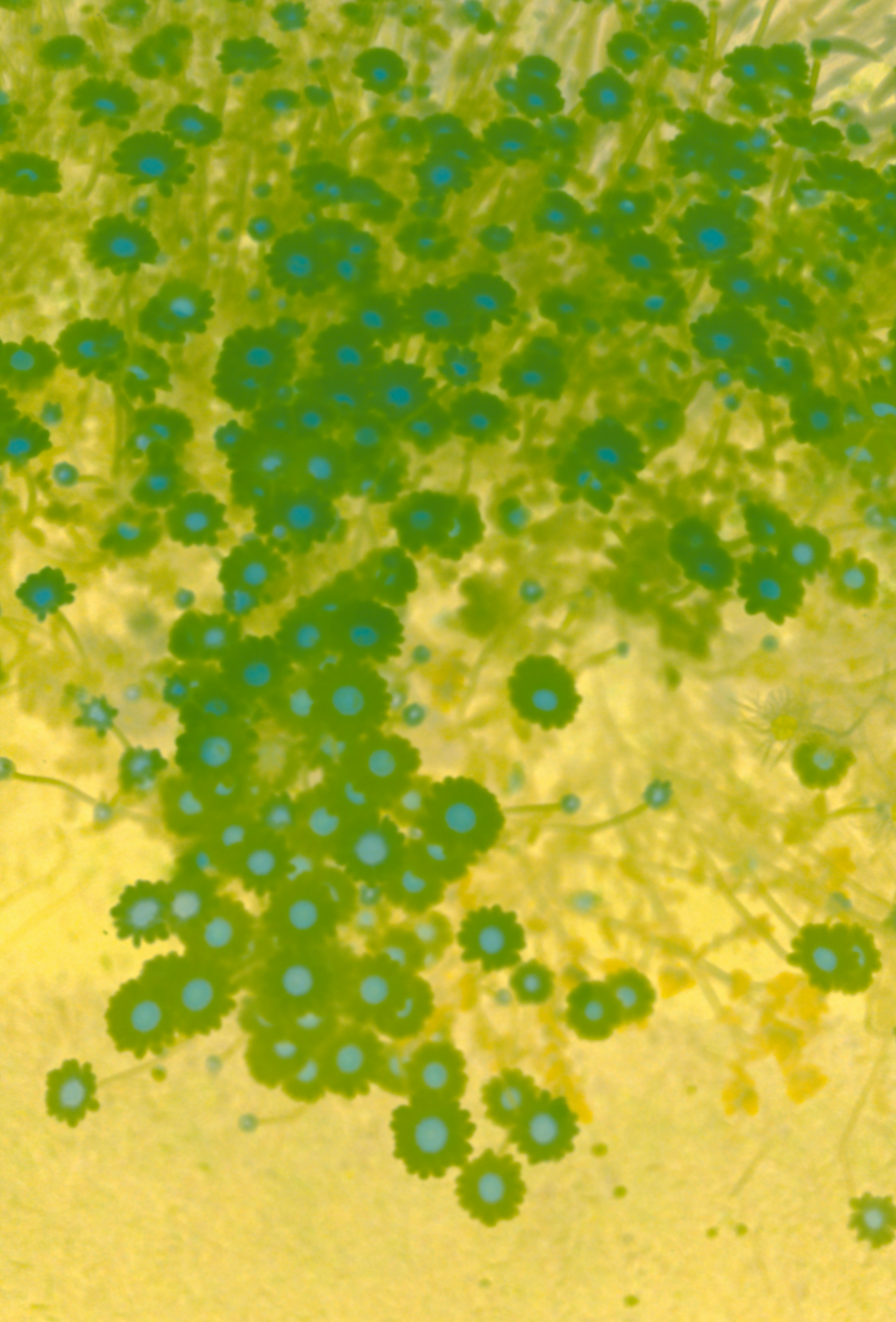Get a deeper look into your health.
Schedule online, results in a week
Clear guidance, follow-up care available
HSA/FSA Eligible
The Power of EPA: Why This Omega-3 Matters for Your Health
Explore how EPA supports cardiovascular and cognitive health, plus how to find high-quality omega-3 supplements.

Written by
Mito Health

What is EPA?
EPA (eicosapentaenoic acid) is a type of omega-3 fatty acid primarily found in fatty fish like salmon, mackerel, and sardines, as well as in fish oil supplements.It is a polyunsaturated fat that plays a crucial role in reducing inflammation, improving heart health, and supporting brain function.EPA is one of the two main omega-3 fatty acids (along with DHA) that are directly beneficial to health.
What does it assess?
EPA levels assess an individual’s status of omega-3 fatty acids, specifically focusing on the anti-inflammatory and cardiovascular benefits.EPA is also important for mental health, as it has been shown to have a positive impact on mood and cognition.
How do I optimize my EPA levels?
Consume fish high in EPA, such as mackerel, salmon, sardines, and anchovies.These provide direct sources of EPA and DHA that are highly bioavailable. For vegetarians or those avoiding fish, algal oil supplements can provide DHA and EPA.Algal oil is a plant-based alternative and the best option for directly increasing EPA and DHA levels without the need for fish-based products. Omega-6 fatty acids can compete with omega-3s in the body.Reducing omega-6 intake and focusing on omega-3-rich foods helps optimize the omega-3 to omega-6 ratio, benefiting EPA and overall health.
What do high and low EPA levels mean?
High levels of EPA are typically associated with a reduced risk of cardiovascular diseases, lower inflammation, and improved mood and cognitive function.However, excessively high EPA levels can lead to adverse effects, such as blood thinning, which increases the risk of bleeding. It is important to maintain balanced levels for optimal health benefits.Low levels of EPA can be indicative of inadequate omega-3 intake, which may contribute to increased inflammation, higher cardiovascular risk, and poor mental health outcomes.Deficient EPA levels are linked to a higher risk of depression, cognitive decline, and inflammatory diseases.
Related MitoHealth Reads
https://mitohealth.com/improve/how-to-improve-your-arachidonic-acid-epa-ratio-naturally
https://mitohealth.com/improve/how-to-improve-your-epa-naturally
https://mitohealth.com/symptoms/light-sleep-after-eating
https://mitohealth.com/symptoms/light-sleep-after-exercise
https://mitohealth.com/symptoms/light-sleep-after-menopause
https://mitohealth.com/symptoms/light-sleep-at-night
https://mitohealth.com/symptoms/poor-sleep-after-eating
https://mitohealth.com/symptoms/poor-sleep-after-exercise
https://mitohealth.com/symptoms/poor-sleep-after-menopause
https://mitohealth.com/symptoms/poor-sleep-at-night
Get a deeper look into your health.
Schedule online, results in a week
Clear guidance, follow-up care available
HSA/FSA Eligible

Comments
The Power of EPA: Why This Omega-3 Matters for Your Health
Explore how EPA supports cardiovascular and cognitive health, plus how to find high-quality omega-3 supplements.

Written by
Mito Health

What is EPA?
EPA (eicosapentaenoic acid) is a type of omega-3 fatty acid primarily found in fatty fish like salmon, mackerel, and sardines, as well as in fish oil supplements.It is a polyunsaturated fat that plays a crucial role in reducing inflammation, improving heart health, and supporting brain function.EPA is one of the two main omega-3 fatty acids (along with DHA) that are directly beneficial to health.
What does it assess?
EPA levels assess an individual’s status of omega-3 fatty acids, specifically focusing on the anti-inflammatory and cardiovascular benefits.EPA is also important for mental health, as it has been shown to have a positive impact on mood and cognition.
How do I optimize my EPA levels?
Consume fish high in EPA, such as mackerel, salmon, sardines, and anchovies.These provide direct sources of EPA and DHA that are highly bioavailable. For vegetarians or those avoiding fish, algal oil supplements can provide DHA and EPA.Algal oil is a plant-based alternative and the best option for directly increasing EPA and DHA levels without the need for fish-based products. Omega-6 fatty acids can compete with omega-3s in the body.Reducing omega-6 intake and focusing on omega-3-rich foods helps optimize the omega-3 to omega-6 ratio, benefiting EPA and overall health.
What do high and low EPA levels mean?
High levels of EPA are typically associated with a reduced risk of cardiovascular diseases, lower inflammation, and improved mood and cognitive function.However, excessively high EPA levels can lead to adverse effects, such as blood thinning, which increases the risk of bleeding. It is important to maintain balanced levels for optimal health benefits.Low levels of EPA can be indicative of inadequate omega-3 intake, which may contribute to increased inflammation, higher cardiovascular risk, and poor mental health outcomes.Deficient EPA levels are linked to a higher risk of depression, cognitive decline, and inflammatory diseases.
Related MitoHealth Reads
https://mitohealth.com/improve/how-to-improve-your-arachidonic-acid-epa-ratio-naturally
https://mitohealth.com/improve/how-to-improve-your-epa-naturally
https://mitohealth.com/symptoms/light-sleep-after-eating
https://mitohealth.com/symptoms/light-sleep-after-exercise
https://mitohealth.com/symptoms/light-sleep-after-menopause
https://mitohealth.com/symptoms/light-sleep-at-night
https://mitohealth.com/symptoms/poor-sleep-after-eating
https://mitohealth.com/symptoms/poor-sleep-after-exercise
https://mitohealth.com/symptoms/poor-sleep-after-menopause
https://mitohealth.com/symptoms/poor-sleep-at-night
Get a deeper look into your health.
Schedule online, results in a week
Clear guidance, follow-up care available
HSA/FSA Eligible

Get a deeper look into your health.
Schedule online, results in a week
Clear guidance, follow-up care available
HSA/FSA Eligible
Comments
Get a deeper look into your health.
Schedule online, results in a week
Clear guidance, follow-up care available
HSA/FSA Eligible
The Power of EPA: Why This Omega-3 Matters for Your Health
Explore how EPA supports cardiovascular and cognitive health, plus how to find high-quality omega-3 supplements.

Written by
Mito Health

What is EPA?
EPA (eicosapentaenoic acid) is a type of omega-3 fatty acid primarily found in fatty fish like salmon, mackerel, and sardines, as well as in fish oil supplements.It is a polyunsaturated fat that plays a crucial role in reducing inflammation, improving heart health, and supporting brain function.EPA is one of the two main omega-3 fatty acids (along with DHA) that are directly beneficial to health.
What does it assess?
EPA levels assess an individual’s status of omega-3 fatty acids, specifically focusing on the anti-inflammatory and cardiovascular benefits.EPA is also important for mental health, as it has been shown to have a positive impact on mood and cognition.
How do I optimize my EPA levels?
Consume fish high in EPA, such as mackerel, salmon, sardines, and anchovies.These provide direct sources of EPA and DHA that are highly bioavailable. For vegetarians or those avoiding fish, algal oil supplements can provide DHA and EPA.Algal oil is a plant-based alternative and the best option for directly increasing EPA and DHA levels without the need for fish-based products. Omega-6 fatty acids can compete with omega-3s in the body.Reducing omega-6 intake and focusing on omega-3-rich foods helps optimize the omega-3 to omega-6 ratio, benefiting EPA and overall health.
What do high and low EPA levels mean?
High levels of EPA are typically associated with a reduced risk of cardiovascular diseases, lower inflammation, and improved mood and cognitive function.However, excessively high EPA levels can lead to adverse effects, such as blood thinning, which increases the risk of bleeding. It is important to maintain balanced levels for optimal health benefits.Low levels of EPA can be indicative of inadequate omega-3 intake, which may contribute to increased inflammation, higher cardiovascular risk, and poor mental health outcomes.Deficient EPA levels are linked to a higher risk of depression, cognitive decline, and inflammatory diseases.
Related MitoHealth Reads
https://mitohealth.com/improve/how-to-improve-your-arachidonic-acid-epa-ratio-naturally
https://mitohealth.com/improve/how-to-improve-your-epa-naturally
https://mitohealth.com/symptoms/light-sleep-after-eating
https://mitohealth.com/symptoms/light-sleep-after-exercise
https://mitohealth.com/symptoms/light-sleep-after-menopause
https://mitohealth.com/symptoms/light-sleep-at-night
https://mitohealth.com/symptoms/poor-sleep-after-eating
https://mitohealth.com/symptoms/poor-sleep-after-exercise
https://mitohealth.com/symptoms/poor-sleep-after-menopause
https://mitohealth.com/symptoms/poor-sleep-at-night
Get a deeper look into your health.
Schedule online, results in a week
Clear guidance, follow-up care available
HSA/FSA Eligible

Comments
The Power of EPA: Why This Omega-3 Matters for Your Health
Explore how EPA supports cardiovascular and cognitive health, plus how to find high-quality omega-3 supplements.

Written by
Mito Health

What is EPA?
EPA (eicosapentaenoic acid) is a type of omega-3 fatty acid primarily found in fatty fish like salmon, mackerel, and sardines, as well as in fish oil supplements.It is a polyunsaturated fat that plays a crucial role in reducing inflammation, improving heart health, and supporting brain function.EPA is one of the two main omega-3 fatty acids (along with DHA) that are directly beneficial to health.
What does it assess?
EPA levels assess an individual’s status of omega-3 fatty acids, specifically focusing on the anti-inflammatory and cardiovascular benefits.EPA is also important for mental health, as it has been shown to have a positive impact on mood and cognition.
How do I optimize my EPA levels?
Consume fish high in EPA, such as mackerel, salmon, sardines, and anchovies.These provide direct sources of EPA and DHA that are highly bioavailable. For vegetarians or those avoiding fish, algal oil supplements can provide DHA and EPA.Algal oil is a plant-based alternative and the best option for directly increasing EPA and DHA levels without the need for fish-based products. Omega-6 fatty acids can compete with omega-3s in the body.Reducing omega-6 intake and focusing on omega-3-rich foods helps optimize the omega-3 to omega-6 ratio, benefiting EPA and overall health.
What do high and low EPA levels mean?
High levels of EPA are typically associated with a reduced risk of cardiovascular diseases, lower inflammation, and improved mood and cognitive function.However, excessively high EPA levels can lead to adverse effects, such as blood thinning, which increases the risk of bleeding. It is important to maintain balanced levels for optimal health benefits.Low levels of EPA can be indicative of inadequate omega-3 intake, which may contribute to increased inflammation, higher cardiovascular risk, and poor mental health outcomes.Deficient EPA levels are linked to a higher risk of depression, cognitive decline, and inflammatory diseases.
Related MitoHealth Reads
https://mitohealth.com/improve/how-to-improve-your-arachidonic-acid-epa-ratio-naturally
https://mitohealth.com/improve/how-to-improve-your-epa-naturally
https://mitohealth.com/symptoms/light-sleep-after-eating
https://mitohealth.com/symptoms/light-sleep-after-exercise
https://mitohealth.com/symptoms/light-sleep-after-menopause
https://mitohealth.com/symptoms/light-sleep-at-night
https://mitohealth.com/symptoms/poor-sleep-after-eating
https://mitohealth.com/symptoms/poor-sleep-after-exercise
https://mitohealth.com/symptoms/poor-sleep-after-menopause
https://mitohealth.com/symptoms/poor-sleep-at-night
Get a deeper look into your health.
Schedule online, results in a week
Clear guidance, follow-up care available
HSA/FSA Eligible

Comments
Recently published
What's included

1 Comprehensive lab test (Core)
One appointment, test at 2,000+ labs nationwide

Personalized health insights & action plan
In-depth recommendations across exercise, nutrition, and supplements

1:1 Consultation
Meet with your dedicated care team to review your results and define next steps

Lifetime health record tracking
Upload past labs and monitor your progress over time

Biological age analysis
See how your body is aging and what’s driving it

Order add-on tests and scans anytime
Access to advanced diagnostics at discounted rates for members
Concierge-level care, made accessible.
Valentine's Offer: Get $75 off your membership
Codeveloped with experts at MIT & Stanford
Less than $1/ day
Billed annually - cancel anytime
Bundle options:
Individual
$399
$324
/year
or 4 interest-free payments of $87.25*
Duo Bundle
(For 2)
$798
$563
/year
or 4 interest-free payments of $167*
Pricing for members in NY, NJ & RI may vary.

Checkout with HSA/FSA
Secure, private platform
What's included

1 Comprehensive lab test (Core)
One appointment, test at 2,000+ labs nationwide

Personalized health insights & action plan
In-depth recommendations across exercise, nutrition, and supplements

1:1 Consultation
Meet with your dedicated care team to review your results and define next steps

Lifetime health record tracking
Upload past labs and monitor your progress over time

Biological age analysis
See how your body is aging and what’s driving it

Order add-on tests and scans anytime
Access to advanced diagnostics at discounted rates for members
Concierge-level care, made accessible.
Valentine's Offer: Get $75 off your membership
Codeveloped with experts at MIT & Stanford
Less than $1/ day
Billed annually - cancel anytime
Bundle options:
Individual
$399
$324
/year
or 4 interest-free payments of $87.25*
Duo Bundle (For 2)
$798
$563
/year
or 4 interest-free payments of $167*
Pricing for members in NY, NJ & RI may vary.

Checkout with HSA/FSA
Secure, private platform
What's included

1 Comprehensive lab test (Core)
One appointment, test at 2,000+ labs nationwide

Personalized health insights & action plan
In-depth recommendations across exercise, nutrition, and supplements

1:1 Consultation
Meet with your dedicated care team to review your results and define next steps

Lifetime health record tracking
Upload past labs and monitor your progress over time

Biological age analysis
See how your body is aging and what’s driving it

Order add-on tests and scans anytime
Access to advanced diagnostics at discounted rates for members
Concierge-level care, made accessible.
Valentine's Offer: Get $75 off your membership
Codeveloped with experts at MIT & Stanford
Less than $1/ day
Billed annually - cancel anytime
Bundle options:
Individual
$399
$324
/year
or 4 payments of $87.25*
Duo Bundle
(For 2)
$798
$563
/year
or 4 payments of $167*
Pricing for members in NY, NJ & RI may vary.

Checkout with HSA/FSA
Secure, private platform




